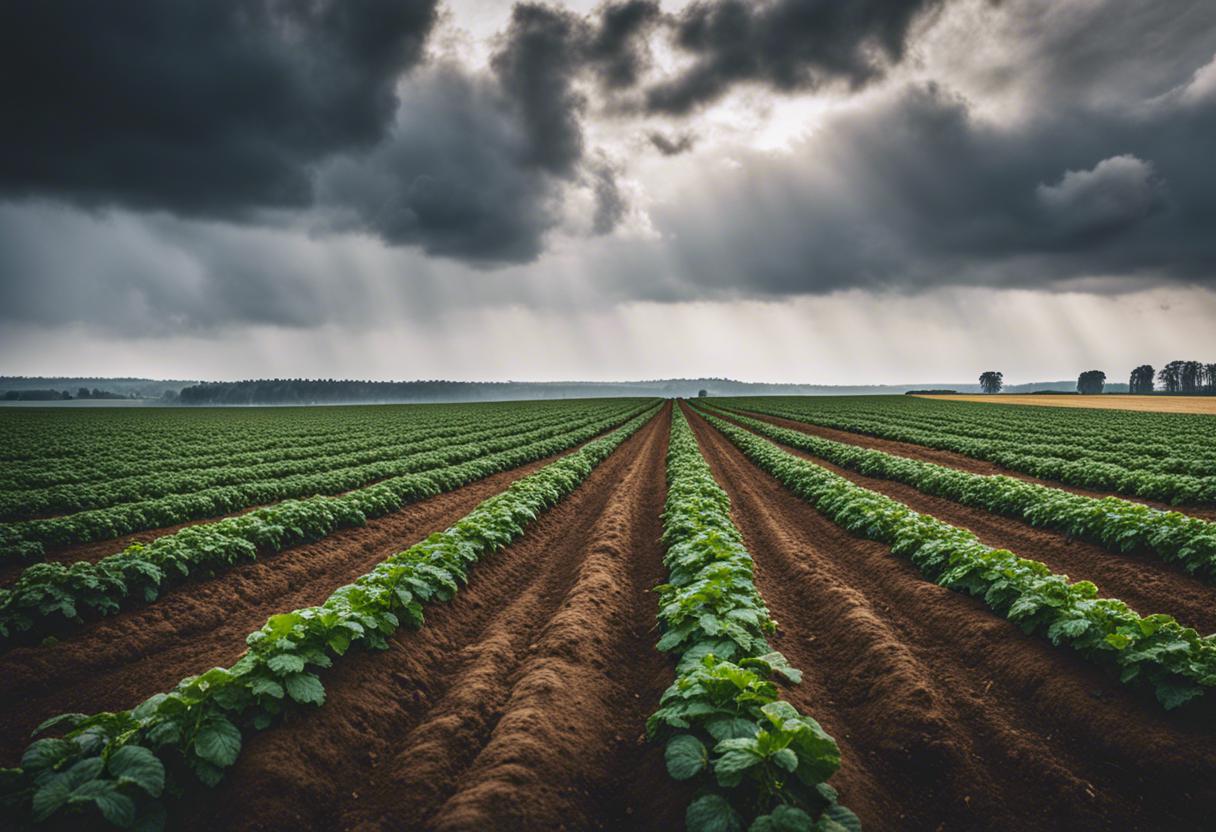Horan’s Fruit and Veg, located in Tralee and Killarney, Co Kerry, is witnessing an unprecedented potato shortage, the likes of which proprietor Dan Horan claims he’s never witnessed in his 35-year career. The situation deviates from past shortages as there are utterly no stocks left for suppliers to conserve and sell during scarcity.
The situation intensified with the onslaught of floods and frost last October, causing extensive damage to late-season favourites such as Roosters and Kerr’s Pink across the country. Further challenges arose this spring when persistent rain delayed potato planting, mirroring a similar delay across Europe. The Irish Farmers’ Association branded last year’s growing season as the most abysmal in living memory, due to identical circumstances.
This year, the potato crop is in shortfall for almost two months. Usually, Golden Wonders and Kerr’s Pink variants last until the start of July, however, this year supplies ended abruptly in May. While Rooster potatoes are available within Horan’s stores, they are not the preferred variety in Kerry. Notably, Kerr’s Pink represents about 90 percent of Horan’s potato sales.
The existing shortage, influencing all potato varieties cultivated in Ireland, is predicted to deepen until mid-July. Given his clientele’s specific preferences, Horan likens promoting Rooster potatoes to offering Heineken to Guinness drinkers. In order to communicate the ongoing difficulties, Horan utilised TikTok, with his exposition video amassing almost 150,000 views.
Shops nationwide, reliant on local suppliers, have adapted their strategies in response to the shortage. This includes promoting relatively unknown potato varieties, hoping customers will hold out until the preferred types become available. Horan has similarly endeavoured to guide customers towards alternate varieties through his TikTok video, until supplies of Kerr’s Pink potatoes can be replenished.
A TikTok video was made to explain the hardships encountered and politely seek patience,” mentioning, “we anticipate a return to normalcy by August, though it has been an immensely challenging year.”
The harshest year in over three decades corresponds with climate changes, leading to the worry that this may be a sign of what lies ahead. From the expressed concerns of growers, inadequate supply to meet rising demand will lead to rationed amounts, increased prices, and a lower quality of imports until mid-July, when harvesting is expected to commence.
In particular, Colin Buttimer, potato farmer in Fermoy, Co Cork, and member of the IFA’s national potato committee representing Ireland’s 600 professional potato producers, revealed, “we had doubts about being able to plant at all this year, a situation we’ve never faced before.” June saw him conclude planting, a first-time occurrence for his father, a dedicated potato farmer of over four decades.
Buttimer voiced his fears over constantly changing weather patterns, explaining, “sure, there’s been dry and wet years, but the current weather trend is somewhat alarming.” Ideal planting would have been finished in April, with May being a late but acceptable timeframe. June planting is an entirely new and unsettling experience for Rockvale Farm in Fermoy.
Even though planting has been achieved somehow, Buttimer believes harm has already been caused as late planting will lead to a reduced yield and, subsequently, decreased earnings. The added challenges make farming less enjoyable, although it’s in a farmer’s nature to persevere through uncontrollable circumstances.
Efforts by IPM Potato Group and Teagasc are ongoing to mitigate weather-related risks by studying new varieties which have shorter growing seasons. Despite releasing several new varieties annually, but it seems none can compete with the seemingly unbeatable Rooster, except perhaps in Kerry. Nevertheless, the new varieties gain traction internationally, with annual exports above 50 countries.
Denis Griffin, a potato breeder and chief research official at Teagasc, has conveyed the significance of discovering fresh varieties of potatoes. In particular, his team is interested in developing a resilient “super potato” due to the constant threats of surplus rainfall and possible potato shortages. Nonetheless, crafting such a resistant and marketable potato variety is a challenging endeavour.
Further complexities arise as the new potato varieties are not only needed to mature earlier, but they should also be more efficient in their use of fertiliser. Unfortunately, these traits are traditionally linked with late maturing varieties. Griffin acknowledges the unique complications experienced each year due to varied conditions such as insufficient rainfall, excessive moisture, and worsening late blight, particularly concerning due to its resistance against common control methods.
Griffin affirms the importance of creating appealing variety while ensuring resilience, citing the additional challenges faced in breeding such types. These new varieties should ideally be both sustainable for the environment and profitable for the farmer. In the future, gene modification techniques might be employed to adjust the maturity timeline of a late variety, for instance, the Rooster.
However, such modifications would not necessarily be effective against long spells of drought that contribute to decreased yields. The drought situation observed in 2018 is a case in point, where later varieties demonstrated greater endurance than early ones.

